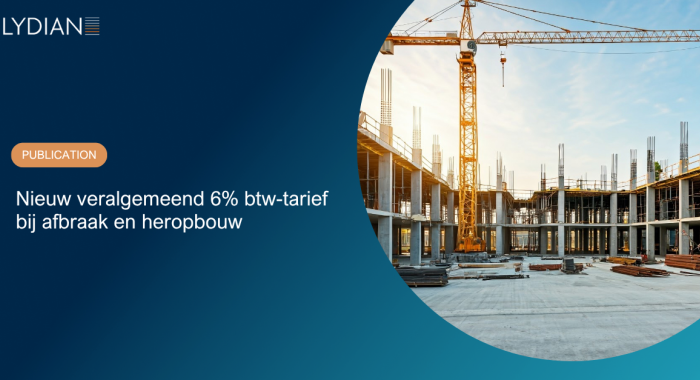
The Belgian investment deduction: proposed modifications will substantially change existing rules
On 6 March 2024, a draft bill was introduced in the Federal Parliament proposing various changes to the current investment deduction regime and the tax credit regime. These changes are motivated by various technological evolutions and climate policies.
The current regime provides a deduction from the taxable profits amounting to a specific percentage of the acquisition value of newly acquired tangible or intangible fixed assets. The current rate is 8% for individuals and SMEs. Furthermore, all companies can benefit from an increased deduction on certain specific investments, which depends on the specific investment made, and considers the inflation as well. A spread investment deduction is also possible for environmentally friendly investments in R&D. Lastly, certain investments are specifically excluded.
Under the new tax rules, companies and self-employed individuals subject to Belgian income tax can benefit from an additional tax deduction if they invest in various well-defined categories of new tangible or intangible fixed assets which they use in Belgium for their business activities. Certain investments are however specifically excluded from the application of the new tax rules.
The deduction amounts to a fixed percentage of the acquisition value of the qualifying assets.
The new tax regime distinguishes the following categories of investment deduction:
- The “basic” or ordinary investment deduction of 10% for SMEs and self-employed individuals. This deduction does however not apply for investments with a negative impact on the climate and environment (except if no alternative exists). A detailed list will be introduced. The deduction is increased to 20% in the case of an investment in digital fixed assets.
- The “thematic” investment deduction, which is an increased deduction of 40% for SMEs and self-employed individuals and 30% for other companies. To apply this deduction, the investment needs to be made in one of the following categories:
- Efficient energy consumption and renewable energy;
- Carbon-free transport;
- Environmentally friendly investments;
- Supporting digital investments related to the three aforementioned types of investments.
A list of qualifying assets and technologies will be issued.
- The technology deduction of 13.5% for environmentally friendly investments made in R&D and investments made in patents. The deduction amounts to 20.5% in the case of a staggered deduction.
The existing rules regarding the carry-forward of unused investment deductions will be maintained.
The new regime will apply to investments made as of 1 January 2025. The current rules regarding the spread investment deduction will remain applicable for assets acquired or established before 1 January 2025.



